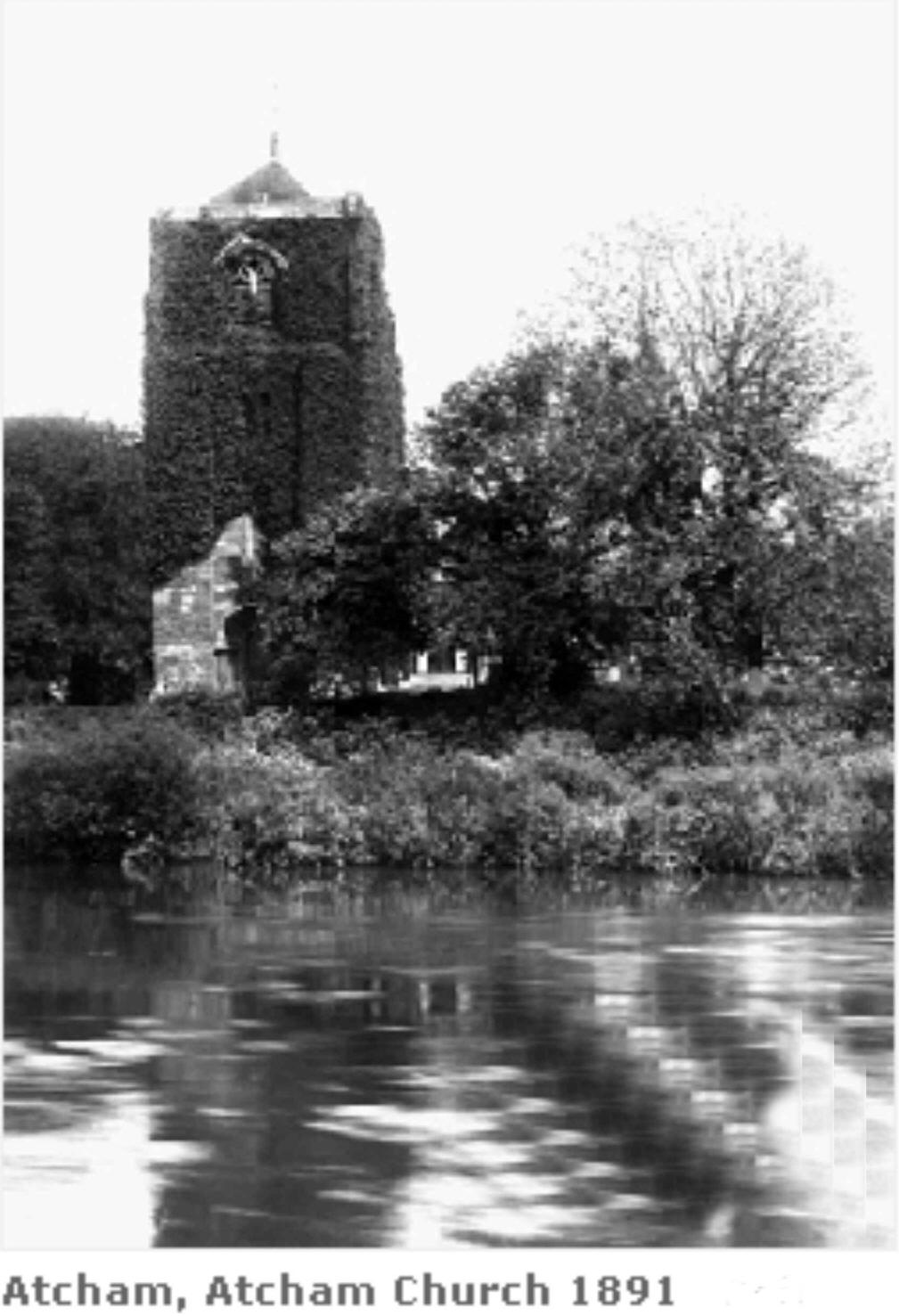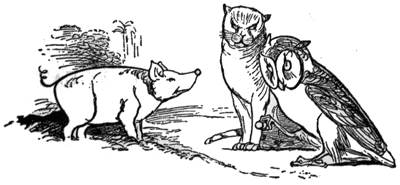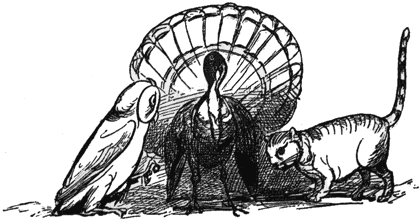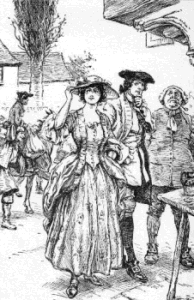|
| |
Thought
for the day:...
Oh,
the more it changes the more it stays the same
Its
just God's hand that rearranges the players in the game
Selected Favourite Poems of the Compilers
( but chiefly Gerald who needed some light
entertainment after spending months researching dingy and dusty archives in the
gloom and silence! )
In "Mesopotamia--1917"
Rudyard Kipling wet his whistle, cleared his throat of anything that might
grate, and definitely raised his voice to express grief and a very healthy
specific - class hatred:
They shall not return to us, the
resolute, the young,
The eager and whole-hearted whom we gave:
But the men who left them thriftily to die in their own dung,
Shall they come with years and honour to the grave?
Shall we only threaten and be angry for
an hour?
When the storm is ended shall we find
How softly but how swiftly they have sidled back to power
By their favour and contrivance of their kind?

Amazing
Grace
"Amazing Grace, how
sweet the sound,
That saved a wretch like me....
I once was lost but now am found,
Was blind, but now, I see.
T'was Grace that taught...
my heart to fear.
And Grace, my fears relieved.
How precious did that Grace appear...
the hour I first believed.
Through many dangers, toils and snares...
we have already come.
T'was Grace that brought us safe thus far...
and Grace will lead us home.
The Lord has promised good to me...
His word my hope secures.
He will my shield and portion be...
as long as life endures.
When we've been here ten thousand years...
bright shining as the sun.
We've no less days to sing God's praise...
then when we've first begun.
"Amazing Grace, how sweet the sound,
That saved a wretch like me....
I once was lost but now am found,
Was blind, but now, I see.

'Twas brillig, and the slithy toves
Did gyre and gimble in the wabe;
All mimsy were the borogoves,
And the mome raths outgrabe.
"Beware the Jabberwock, my son!
The jaws that bite, the claws that catch!
Beware the Jubjub bird, and shun
The frumious Bandersnatch!"
He took his vorpal sword in hand:
Long time the manxome foe he sought --
So rested he by the Tumtum tree.
And stood awhile in thought.
And as in uffish thought he stood,
The Jabberwock, with eyes of flame,
Came wiffling through the tulgey wood,
And burbled as it came!
One, two! One, two! And through and through
The vorpal blade went snicker-snack!
He left it dead, and with its head
He went galumphing back.
"And hast thou slain the Jabberwock?
Come to my arms, my beamish boy!
frabjous day! Callooh! Callay!"
He chortled in his joy.
'Twas brillig, and the slithy toves
Did gyre and gimble in the wabe;
All mimsy were the borogoves,
And the mome raths outgrabe.
The Owl and the Pussy-cat

| I |
|
The Owl and the Pussy-cat went to sea
In a beautiful pea green boat,
They took some honey, and plenty of money,
Wrapped up in a five pound note.
The Owl looked up to the stars above,
And sang to a small guitar,
'O lovely Pussy! O Pussy my love,
What a beautiful Pussy you are,
You are,
You are!
What a beautiful Pussy you are!'
|
| II |
|
Pussy said to the Owl, 'You elegant fowl!
How charmingly sweet you sing!
O let us be married! too long we have tarried:
But what shall we do for a ring?'
They sailed away, for a year and a day,
To the land where the Bong-tree grows
And there in a wood a Piggy-wig stood
With a ring at the end of his nose,
His nose,
His nose,
With a ring at the end of his nose.
|

| III |
|
'Dear pig, are you willing to sell for one shilling
Your ring?' Said the Piggy, 'I will.'
So they took it away, and were married next day
By the Turkey who lives on the hill.
They dined on mince, and slices of quince,
Which they ate with a runcible spoon;
And hand in hand, on the edge of the sand,
They danced by the light of the moon,
The moon,
The moon,
They danced by the light of the moon.
|

A
Smuggler's Song
by
Rudyard Kipling

If you wake at
Midnight, and hear a horse's feet,
Don't go drawing back the blind, or looking in the street,
Them that asks no questions isn't told a lie.
Watch the wall, my darling, while the Gentlemen go by!
Five and
twenty ponies
Trotting through the dark -
Brandy for the Parson.
'Baccy for the Clerk;
Laces for a lady, letters for a spy,
And watch the wall, my darling, while the Gentlemen go by!
Running
round the woodlump, if you chance to find
Little barrels, roped and tarred, all full of brandy-wine,
Don't you shout to come and look, nor use 'em for your play.
Put the brushwood back again - and they'll be gone next day!
Five and
twenty ponies
Trotting through the dark -
Brandy for the Parson.
'Baccy for the Clerk;
Laces for a lady, letters for a spy,
And watch the wall, my darling, while the Gentlemen go by!
If you
see the stable door setting open wide;
If you see a tired horse lying down inside;
If your mother mends a coat cut about and tore;
If the lining's wet and warm - don't you ask no more!
Five and
twenty ponies
Trotting through the dark -
Brandy for the Parson.
'Baccy for the Clerk;
Laces for a lady, letters for a spy,
And watch the wall, my darling, while the Gentlemen go by!
If you
meet King George's men, dressed in blue and red,
You be careful what you say, and mindful what is said.
If they call you "pretty maid", and chuck you 'neath the chin,
Don't you tell where no one is, nor yet where no one's been!
Five and
twenty ponies
Trotting through the dark -
Brandy for the Parson.
'Baccy for the Clerk;
Laces for a lady, letters for a spy,
And watch the wall, my darling, while the Gentlemen go by!
If you
do as you've been told, 'likely there's a chance,
You'll be given a dainty doll, all the way from France,
With a cap of pretty lace, and a velvet hood -
A present from the Gentlemen, along o' being good!
Five and
twenty ponies
Trotting through the dark -
Brandy for the Parson.
'Baccy for the Clerk;
Laces for a lady, letters for a spy,
And watch the wall, my darling, while the Gentlemen go by!

You
are old, father William,
A
poem by Lewis
Carroll
|
|
You
are old, father William...
"You are old, father William," the young man said,
"And your hair has become very white;
And yet you incessantly stand on your head
Do you think, at your age, it is right?
"In my youth," father William replied to his son,
"I feared it might injure the brain;
But, now that I'm perfectly sure I have none,
Why, I do it again and again."
"You are old," said the youth, "as I mentioned before,
And you have grown most uncommonly fat;
Yet you turned a back-somersault in at the door
Pray what is the reason for that?"
"In my youth," said the sage, as he shook his grey locks,
"I kept all my limbs very supple
By the use of this ointment one shilling a box
Allow me to sell you a couple?"
"You are old," said the youth, "and your jaws are too weak
For anything tougher than suet;
Yet you finished the goose, with the bones and the beak
Pray, how did you manage to do it?"
"In my youth," said his father, "I took to the law,
And argued each case with my wife;
And the muscular strength, which it gave to my jaw,
Has lasted the rest of my life."
"You are old," said the youth, "one would hardly suppose
That your eye was as steady as ever;
Yet you balanced an eel on the end of your nose
What made you so awfully clever?"
"I have answered three questions, and that is enough,"
Said his father. "Don't give yourself airs!
Do you think I can listen all day to such stuff?
Be off, or I'll kick you down stairs. |
What is this life if full of care
We have no time to stand and stare?
No time to stand beneath the boughs
And stare as long as sheep, or cows.
No time to see, when woods we pass,
Where squirrels hide their nuts in grass.
No time to see, in broad daylight,
Streams full of stars, like skies at night.
No time to turn at Beauty's glance,
And watch her feet, how they can dance.
No time to wait till her mouth can
Enrich that smile her eyes began.
A poor life this, if full of care,
We have no time to stand and stare.
William Henry Davies 1871 - 1940
...............................................ENJOY
| |


|



